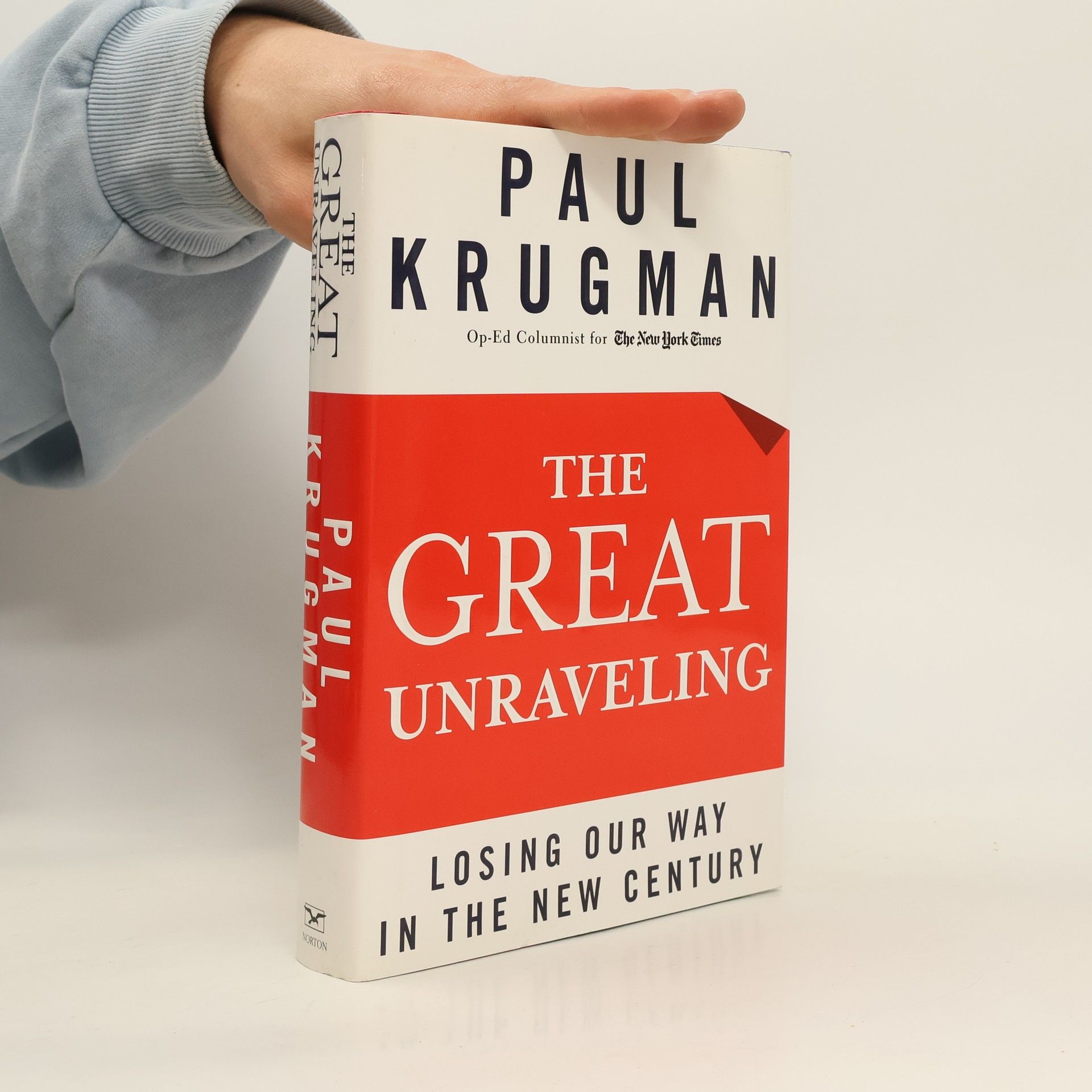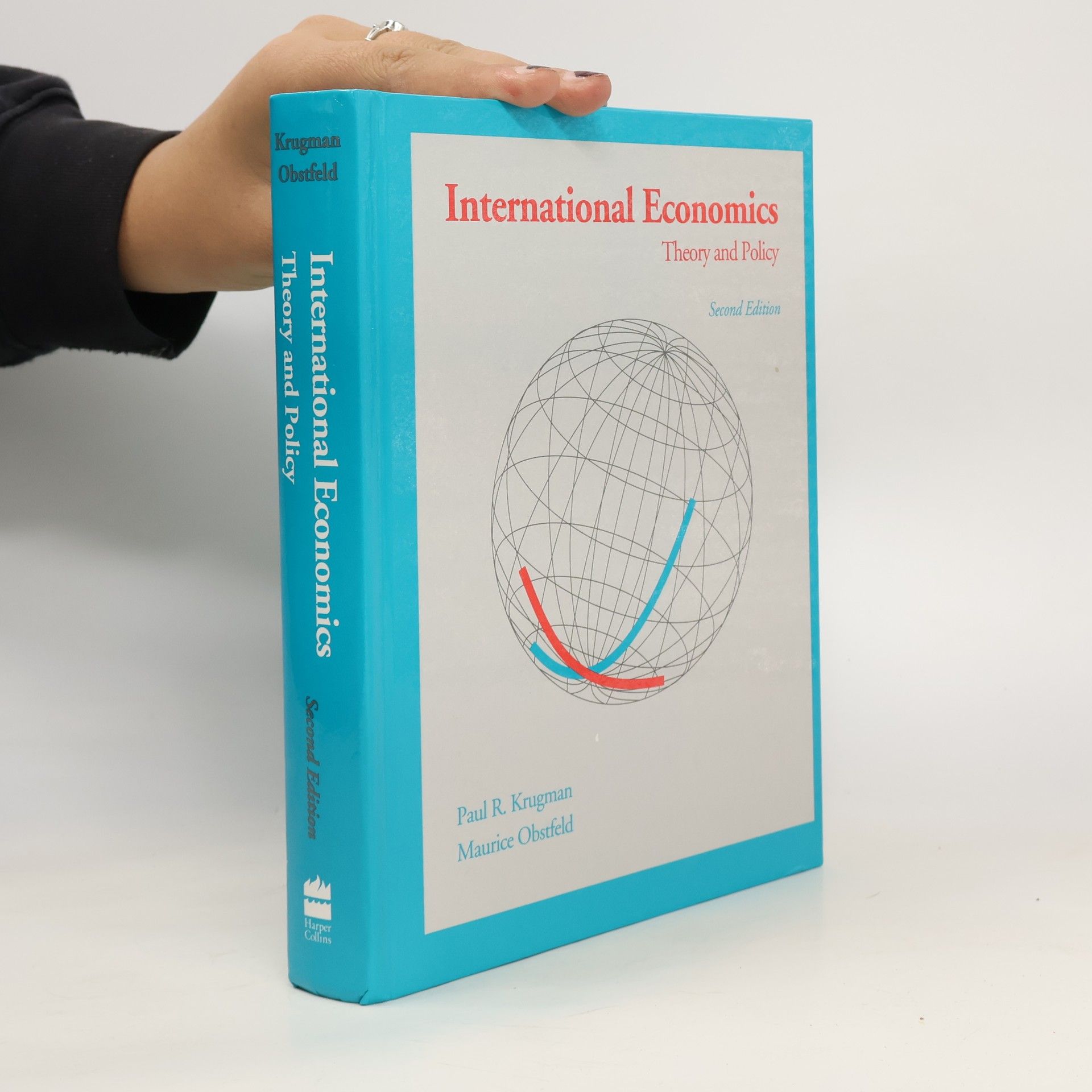Nejnovější kniha nositele Nobelovy ceny za ekonomii, která se na knižních pultech Ameriky objevila koncem dubna 2012! Respektovaný ekonom a pravidelný přispěvatel listu The NewYork Times Paul Krugman se znovu vrací k tématu současné světové ekonomické krize, jemuž věnoval už několik svých předchozích prací. Tentokrát mu nejde v první řadě o určení jejích příčin a rozpoznání varovných signálů v minulosti, jež by mohly být poučením pro budoucnost. Obrací se zde naopak k aktuálním praktickým úkolům, jež by mohly vést k pozitivnímu vyřešení stávající komplikované situace, jež vidí mimo jiné ve větší aktivní účasti státu na ekonomickém dění. Kniha je psána každému srozumitelným jazykem a opět potěší jasností a vtipem, jež jsou pro Krugmana typické.
Paul Krugman Knihy
Paul Krugman je vlivný ekonom a publicista, jehož práce se hluboce zabývá mezinárodní ekonomikou a novými ekonomickými teoriemi. Jeho analytický přístup a jasný styl psaní zpřístupňují složité ekonomické koncepty širšímu publiku. Krugman zkoumá dynamiku světové ekonomiky a dopady globalizace, přičemž často poukazuje na strukturální nerovnosti a výzvy moderního trhu. Jeho eseje a analýzy poskytují cenný vhled do ekonomických sil utvářejících naši dobu.

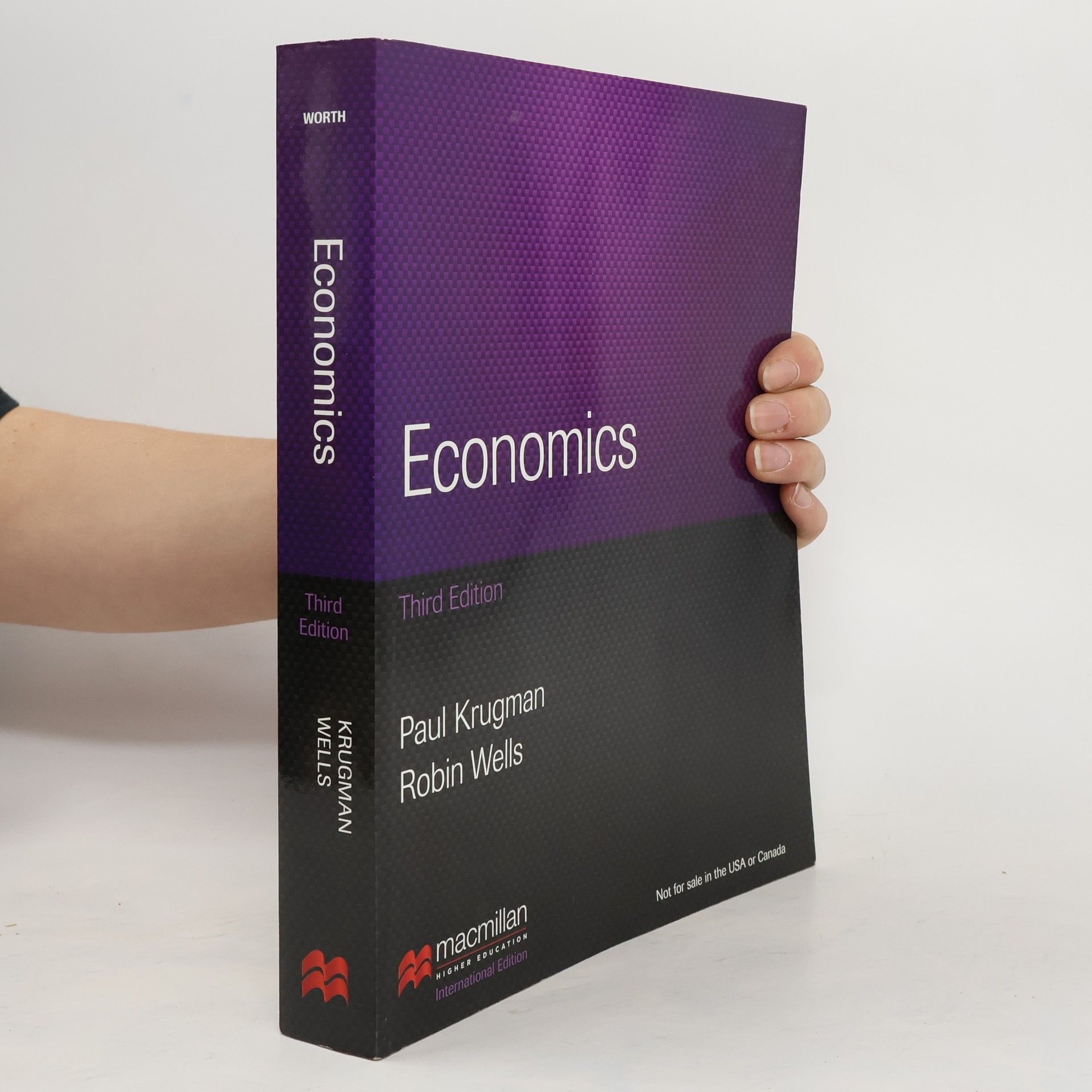
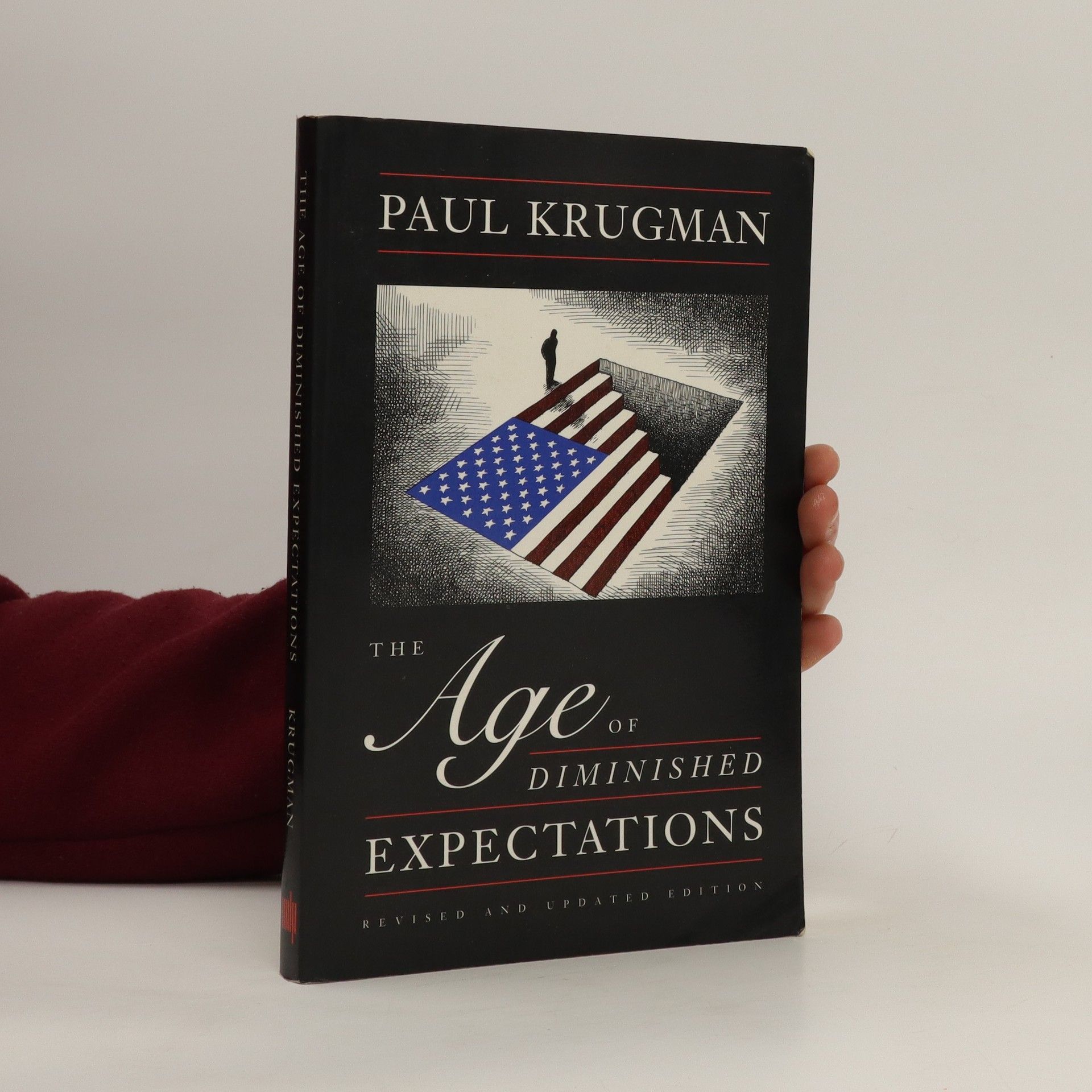
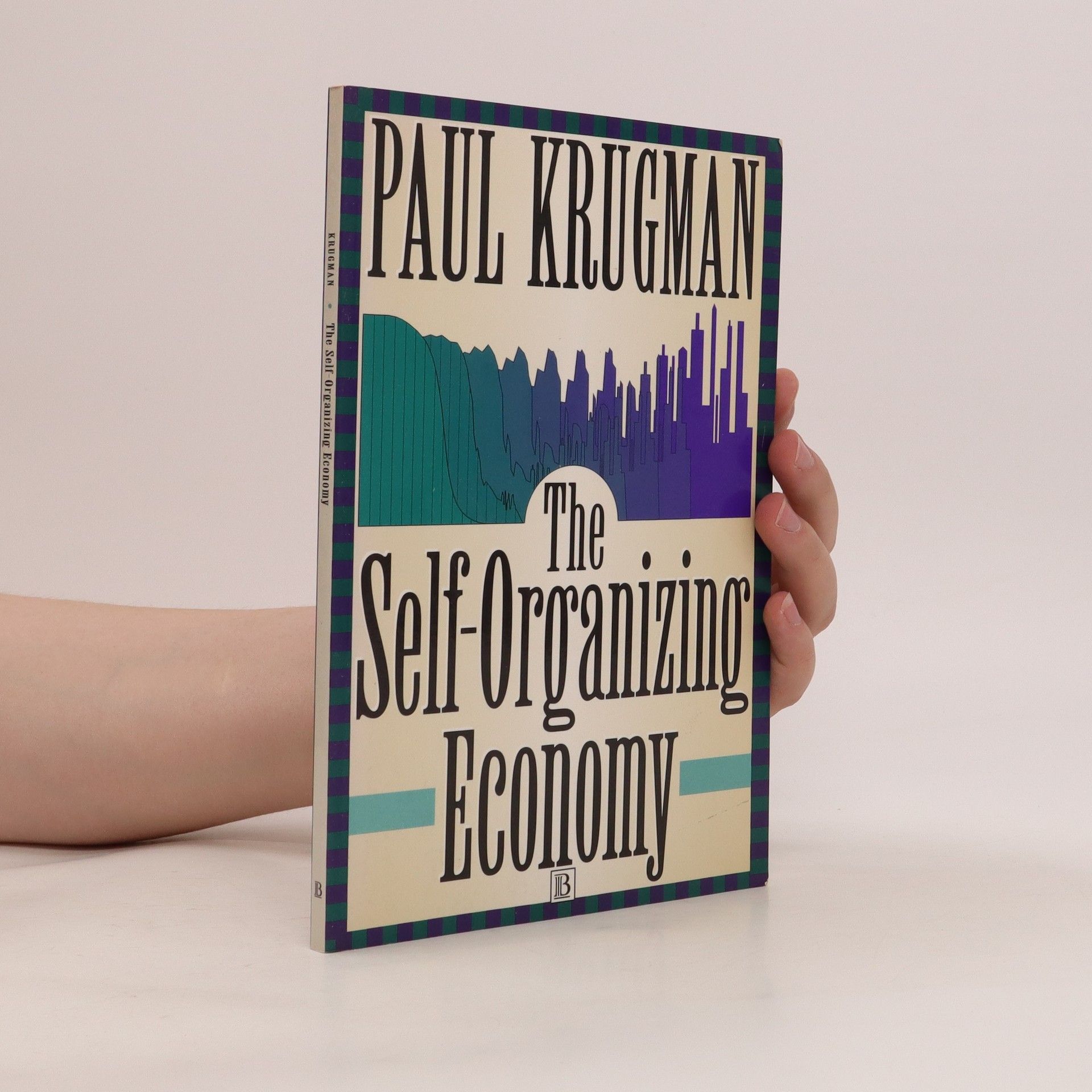



Předmluva známého českého ekonoma Tomáše Sedláčka. Kniha světoznámého amerického ekonoma a nositele Nobelovy ceny P. Krugmana se brzy po svém vydání roku 2007 ve Spojených státech zařadila mezi nejprodávanější knihy. Autor v ní, podobně jako v jiných svých publikacích určených širší veřejnosti, opět prokazuje vzácnou schopnost jasného a jednoznačného podání mnohdy obtížných otázek. Promýšlí zde posledních osmdesát let amerických dějin v kontextu ekonomicko-sociální nerovnosti ve společnosti.
Návrat ekonomické krize
- 168 stránek
- 6 hodin čtení
Známý americký ekonom P. Krugman jako jeden z mála již před nástupem finanční krize roku 2008 upozorňoval na možná úskalí stávajícího vývoje ekonomiky. Nedávné události, jejichž důsledky pocítil v podstatě celý svět, se mu staly podnětem k novému ohlédnutí za dějinami ekonomických krizí 20. století počínaje Velkou hospodářskou krizí 30. let. Jedině v jejich rámci lze podle něj nedávný vývoj pochopit. Poslední z krizí chápe Krugman jako logické vyústění určitých tendencí, jejichž princip bylo už dříve možno pozorovat na jiných krizových ekonomických jevech lokálního dosahu. Autor tak pozoruhodným způsobem analyzuje události, k jakým došlo v Mexiku v 80. letech, v Japonsku v 90. letech, v jihovýchodní Asii koncem 90. let i jinde, aby ukázal zákonitosti, jež zůstaly opomíjeny.
The Self-Organizing Economy In the last few years the concept of self-organizing systems―complex systems in which randomness and chaos seem spontaneously to evolve into unexpected order―has linked together researchers in many fields, from artificial intelligence to chemistry, from evolution to geology. Now leading economist Paul Krugman shows how principles that explain the growth of hurricanes and embryos can also explain the formation of cities and business cycles; how the same principles of “order from random growth” can explain the strangely simple rules that describe the sizes of earthquakes, meteorites, and metropolitan areas. Weaving together strands from many disciplines, from location theory to biology, The Self-Organizing Economy offers a surprising new view of how the economy structures itself in space and time.
Paul Krugman's essential guide to the economic landscape of the 1990s has been revised and updated to include a new introduction in which Krugman connects George Bush's fall from office to simmering dismay over a long-term economic slowdown. There is a new chapter on international finance that focuses primarily on European monetary affairs, and a new chapter on health care that examines why costs have exploded and explains how managed competition and alternative systems would work, and why it is so difficult to control rising health care costs. There are smaller additions throughout the rest of the book. These include: - a discussion of how people misunderstand the relationship between productivity and competitiveness; - the very minor industrial policy proposals that have been made thus far; - new data reflecting even larger gains for the wealthy than have been thought; - a prediction that Clinton's tax plan will have only a small impact; - a discussion of the junk bond market collapse; - and the startling productivity numbers for 1992. Discussions of unemployment and the trade deficit take into account that unemployment has risen, and there is a new section on how the Federal Reserve fumbled, as well as a new assessment of financial markets in light of the recession.
Economics
- 1200 stránek
- 42 hodin čtení
When it comes to explaining current economic conditions, there is no economist readers trust more than New York Times columnist and Nobel laureate Paul Krugman. Term after term, Krugman is earning that same level of trust in the classroom, with more and more instructors introducing students to the fundamental principles of economics via Krugman's signature storytelling style. The new Third Edition of Paul Krugman and Robin Wells's Economics is their most accomplished yet-extensively updated to offer new examples and stories, new case studies from the business world, and expert coverage of the ongoing financial crisis.
Economics: European Edition
- 1044 stránek
- 37 hodin čtení
Economics: European Edition is the ideal text for introductory economics, bringing together an international scope of real world examples and economic theory. The text is supported by a number of features to enhance student understanding as well as supplements to consolidate the learning process.
Peddling Prosperity
Economic Sense & Nonsense In An Age Of Diminished Expectations
- 180 stránek
- 7 hodin čtení
Newsweek hailed Paul Krugman as "a superstar among economists" and went on to praise Peddling Prosperity as "the best primer around on recent U.S. economic history." Others joined the chorus. This wonderfully received book finds him in top form, observing the years he's dubbed "the age of diminished expectations." The past twenty years have been an era of economic disappointment in the United States. They have also been a time of intense economic debate, as rival ideologies contend for policy influence. But strange things have happened to economic ideas on their way to power: they've been hijacked by policy entrepreneurs―economic snake-oil salesmen, right or left, who offer easy answers to hard problems. Supply-siders rose to power with Ronald Reagan and not only cured nothing but left behind a $3 trillion debt. Krugman finds an unhappy parallel in those who shape policy within the Clinton administration.
In this collection of Krugman's most influential columns and additional commentary, he chronicles how the boom economy unravelled and how exuberance gave way to pessimism. He tells the uncomfortable turth about how the US lost its way, and offers a road map for getting it back on track
International Economics. Theory and Policy
- 752 stránek
- 27 hodin čtení
Renowned researchers Paul Krugman and Maurice Obstfeld set the standard for international economics courses with the text that remains the market leader in the U.S. and around the world. International Economics: Theory and Policy is a proven approach in which each half of the book leads with an intuitive introduction to theory and follows with self-contained chapters to cover key policy applications. The Eighth Edition integrates the latest research, data, and policy in hot topics such as outsourcing, economic geography, trade and environment, financial derivatives, the subprime crisis, and China's exchange rate policies.


